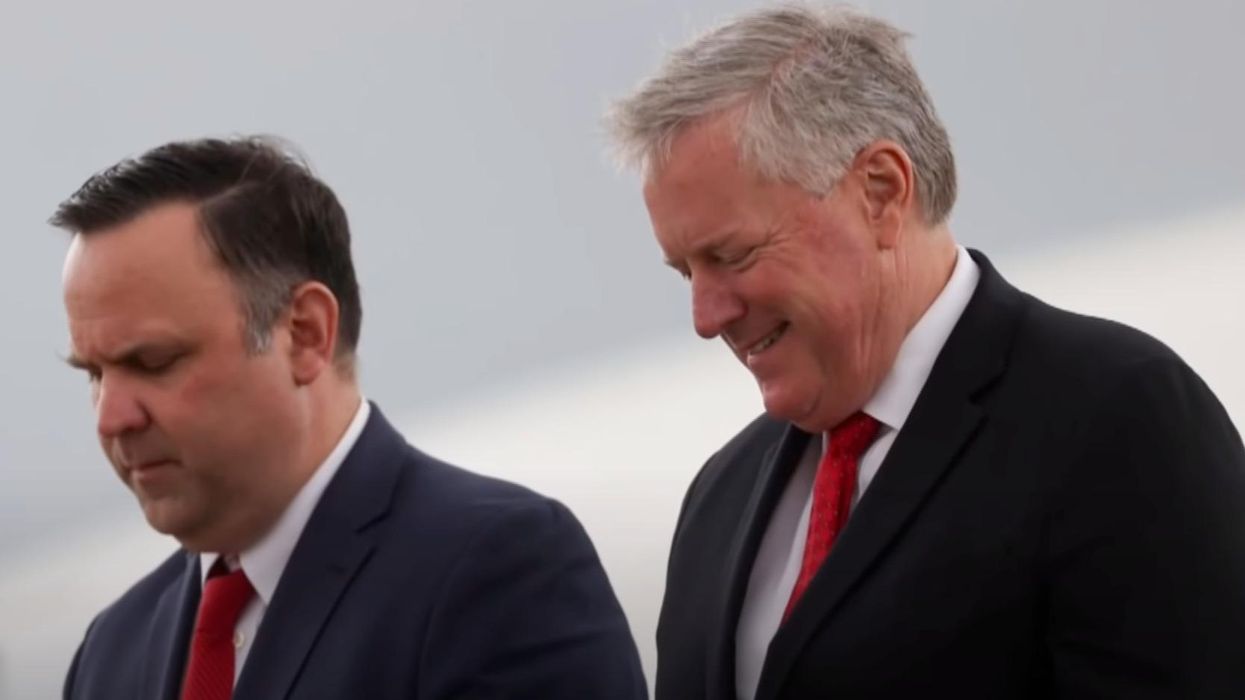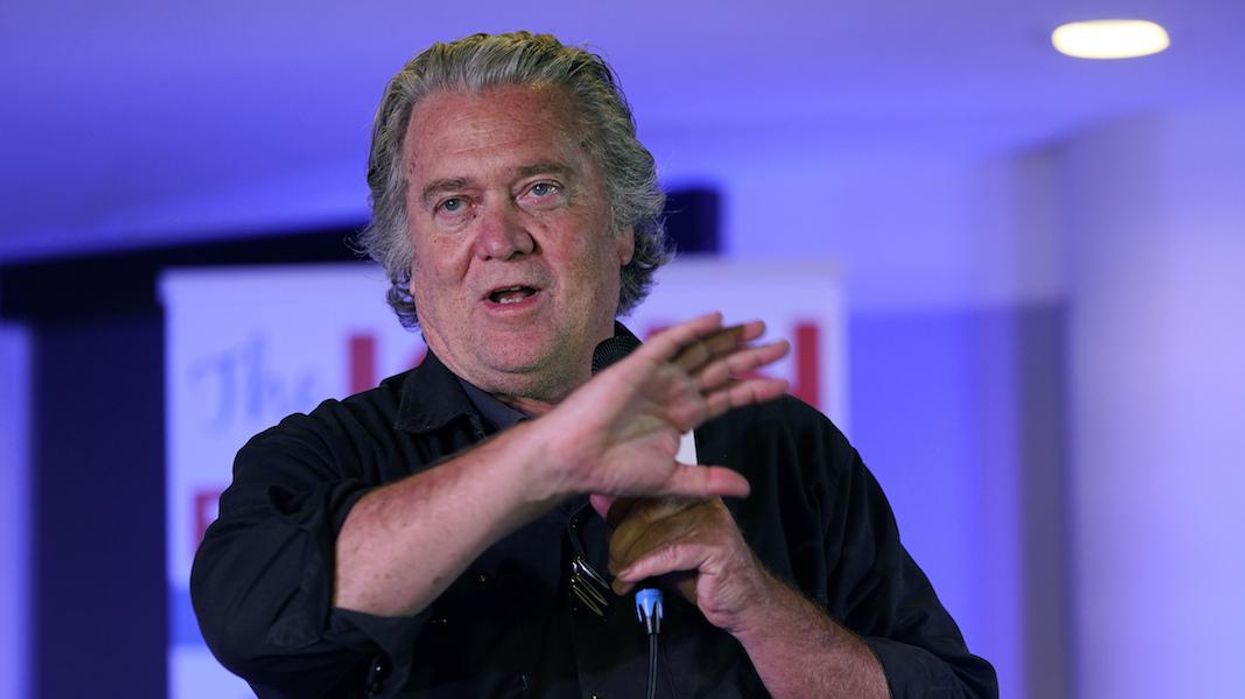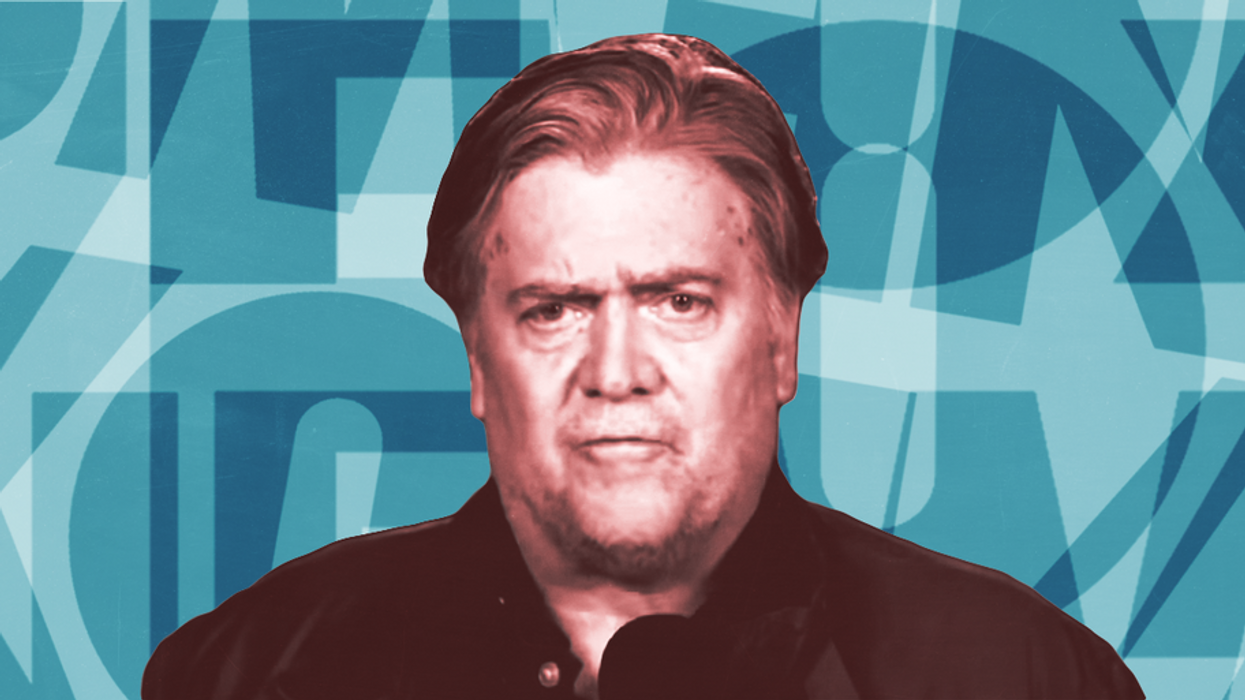Judge May Expose Trump's Secret Effort To Block Testimony About January 6
The chief judge of the District Court in Washington, D.C., is considering making documents concerning Donald Trump’s connections to January 6 open to the public. In this case, the documents relate to how Trump has attempted to prevent former advisors and staff members from testifying before a grand jury hearing evidence related to January 6.
When it comes to Trump and court battles, it can be difficult to keep up. This time, it’s not Trump’s theft of government documents, his tax fraud, or his subpoena to appear before the House Select Committee that’s in the news. It’s that other January 6 investigation, the one being conducted by the Justice Department, that has already resulted in at least 928 arrests, 412 guilty pleas, and 21 people found guilty at trial. There are still dozens, if not hundreds, of trials to come — including the trial of Oath Keepers leaders charged with seditious conspiracy.
But the DOJ’s January 6 investigation doesn’t just include the people who assaulted police, smashed through windows, invaded the Capitol, and physically threatened lawmakers. It also includes those who planted the seeds for that day, and who planned to disrupt the lawful completion of the election process by lying about election fraud, attempting to interfere with state officials, and pushing slates of false electors. Those people are basically known as Trump’s entire campaign and White House team. The DOJ wants the grand jury to hear from those people. Trump has been interfering. And now Judge Beryl Howell is considering showing everyone just what’s going on.
On Wednesday, The New York Times reported on efforts to force two former Trump lawyers—Pat Cipollone and Patrick Philbin—to testify. Trump has claimed that both attorney-client privilege and executive privilege mean that Cipollone and Philbin don’t need to appear. The DOJ has argued that, as the law makes clear, privilege claims cannot be used to cover up a crime. In this case, both Cipollone and Philbin are known to have been directly involved in organizing slates of false electors who could be put forward on January 6 as an excuse to halt the official tallying of electoral votes.
The fight over these two attorneys is just one of many times that Trump has tried to block an appearance before the grand jury. Last week, a panel of federal judges turned down an attempt by Trump to block testimony from Marc Short, who was chief of staff for former Vice President Mike Pence.
In September, 40 subpoenas were issued to former Trump officials, aides, and advisors in one of the clearest signals that the Department of Justice was closing in on how Trump’s efforts to overturn the 2020 election led to the violence of January 6—and how that effort involved a whole host of potential crimes. Those subpoenas included former Trump speechwriter Stephen Miller, campaign strategist Mike Roman, Trump attorney Boris Epshteyn, social media director Dan Scavino, former New York police commissioner turned election-fraud conspiracist Bernard Kerik, and former Trump chief of staff Mark Meadows.
Trump has tried to block the appearance of all these officials, generally using arguments of executive privilege. In fact, the cases that are making their way through the courts now are not those related to the September subpoenas, but a group of officials, including Short, whose subpoenas went out back in June. As Politico reports, it’s been a four-month effort to bring those officials in front of the jury, with Trump filing one appeal after another in an effort to prevent their testimony.
Hours after the court ruled that Trump could not block Short’s testimony, the former Pence chief of staff had his say before the jury and went home. But that’s just one name on a long list, and dealing with Trump’s efforts to prevent former associates from testifying is seriously slowing the pace of the proceedings.
Both Politico and The New York Times have asked Chief Judge Howell to unseal documents related to what is being called “Trump’s secret battle” to prevent the grand jury from hearing from his former aides. Judge Howell has now asked the Department of Justice for their opinion on whether Trump’s meddling should be made public.
In such efforts to block testimony, Trump has consistently lost when it comes to the official results in court. However, his actions have often so slowed processes that by the time the final appeal was put down, the value of testimony or documents was so reduced that Trump’s “loss” is questionable. Trump has become the exemplar for how unlimited money and an unlimited stream of unscrupulous lawyers can keep anything in court perpetually, even when there is no real justification. Appeal. Lose. Appeal. Lose. Appeal. Lose. Change the basis of the appeal and start over. With weeks or months passing between each step, Trump can lose every case and never take a scratch.
These efforts reveal an obvious weakness in the legal system that can be easily exploited. So far, there doesn’t appear to be any effort to address this weakness.
However, Howell—like “special master” Judge Raymond Dearie in the documents case—is taking action to move things along more quickly. In a September 28 ruling, she dismissed efforts by Trump to delay any hearings until after he had exhausted his appeals based on executive privilege. Howell ruled that hearings would continue, even as Trump tried to defend his all-encompassing view on privilege.
Will it help move things along if more information on Trump’s interference with the grand jury becomes public? Probably not. It’s not as if Trump can be shamed. But it would provide some greater insight into just how Trump has been moving to prevent testimony, and what kinds of claims he is making. That could be interesting, and it might even help the next prosecutor and the next judge in dealing with Trump’s infinite bag o’ monkey wrenches.
Reprinted with permission from Daily Kos.




